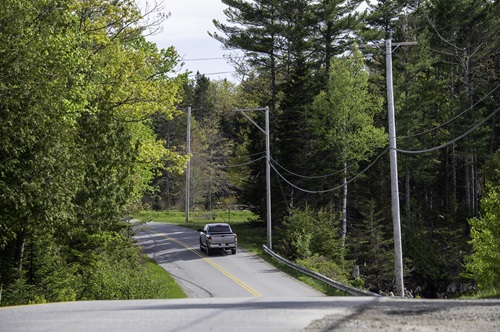
Fast, affordable Internet access for all.

Peppered by winding country roads and remote islands, Maine exemplifies the challenges in even deployment of affordable broadband. But thanks to tenacious island communities and forward-thinking state leadership, a growing roster of community-owned broadband networks are leading the charge toward affordable access in the Pine Tree State.
Peggy Schaffer, former executive director of the state of Maine's broadband mapping and expansion effort, ConnectMaine, has played a starring role in shoring up Maine’s broadband mapping data after years of federal dysfunction.
Schaffer’s well versed in the broad array of challenges faced by remote Maine communities, and says she’s long been impressed by the “scrappy” nature of Maine’s community-owned island deployments, which have faced down and overcome no limit of onerous challenges in an ongoing quest to finally bridge the state’s long standing digital divide.
Maine is currently ranked 49th in the U.S. in terms of resident access to gigabit-capable broadband service. Like so much of the country, the state is heavily dominated by regional monopolies that failed to uniformly deliver affordable, next-generation broadband, despite decades of federal subsidies, regulatory favors, and tax breaks.
Now local Maine communities are taking matters into their own hands, beginning with long-neglected island residents no stranger to unique logistical challenges.

‘It’s A Story Of Perseverance’

The Maine towns of Baileyville and Calais are known for their beautiful scenery and their clean rural lifestyle; soon the region will also be known for its broadband. The two communities have joined together to form the Downeast Broadband Utility (DBU) in order to develop a regional fiber optic network for businesses and residents. Julie Jordan, Director of DBU has joined Christopher this week to talk about the project.
Like many other rural areas in Maine, the towns found that for decades they have had difficulty attracting and retaining businesses and new residents. Community leaders recognize that the poor Internet infrastructure in the area is one of the root causes and aim to amend the problem. By working together, Baileyville and Calais can achieve what would have been extremely difficult for each to do on their own. Once community leaders began investigating what it would take to create a publicly owned network and the benefits that would result, they realized that they had the ability to improve local connectivity. Julie discusses how they've dealt with some of the challenges they've faced and how they're preparing to contend with potential difficulties.
The Post Road Foundation, a nonprofit researching the possibilities of sustainable infrastructure, broadband connectivity, and investment, will be working with DBU. The organization is looking at ways to increase rural deployment across the U.S. DBU is one of several communities partnering with the Post Road Foundation to document discoveries that may help drive investment.
This show is 26 minutes long and can be played on this page or via Apple Podcasts or the tool of your choice using this feed.
Transcript below.
We want your feedback and suggestions for the show-please e-mail us or leave a comment below.
Listen to other episodes here or view all episodes in our index. See other podcasts from the Institute for Local Self-Reliance here.
Thanks to Arne Huseby for the music. The song is Warm Duck Shuffle and is licensed under a Creative Commons Attribution (3.0) license.
Nestled along the south eastern border of Maine are Baileyville and Calais. As rural communities situated next to Canada in the state's "Downeast" region, neither town is on a list of infrastructure upgrades from incumbents. With an aging population, a need to consider their economic future, and no hope of help from big national ISPs, Baileyville and Calais are joining forces and developing their own publicly owned broadband utility.
Baileyville and Calais
There are about 3,000 residents in Calais (pronounced "Kal-iss") and 1,500 in Baileyville, but according to Julie Jordan, Director of Downeast Economic Development Corporation (DEDC), many of those residents are aging and younger people find little reason to stay or relocate in Washington County. The community recognizes that they need to draw in new industries and jobs that will attract young families to keep the towns from fading off the map.
Most of the residents in the region must rely on slow DSL from Consolidated Communications (formerly FairPoint), while a few have access to cable from Spectrum (formerly Time Warner Cable); expensive and unreliable satellite is also an option and there's some limited fixed wireless coverage in the area. A few larger businesses that require fiber optic connectivity can find a way to have it installed, but Julie tells us that it's incredibly expensive in the area and most can't afford the high rates for fiber.
Economic Development Driven
 Organized in 2015, the nonprofit DEDC came together with the focus on recruiting new businesses to the area and to support existing businesses. As DEDC quickly discovered, unless the region could offer high-speed, reliable Internet infrastructure, attracting new businesses and helping existing businesses expand would be extremely difficult. They also determined that new families would not be interested in Baileyville or Calais without high-quality connectivity. "It was a no-brainer," says Julie, "you have to go fiber."
Organized in 2015, the nonprofit DEDC came together with the focus on recruiting new businesses to the area and to support existing businesses. As DEDC quickly discovered, unless the region could offer high-speed, reliable Internet infrastructure, attracting new businesses and helping existing businesses expand would be extremely difficult. They also determined that new families would not be interested in Baileyville or Calais without high-quality connectivity. "It was a no-brainer," says Julie, "you have to go fiber."